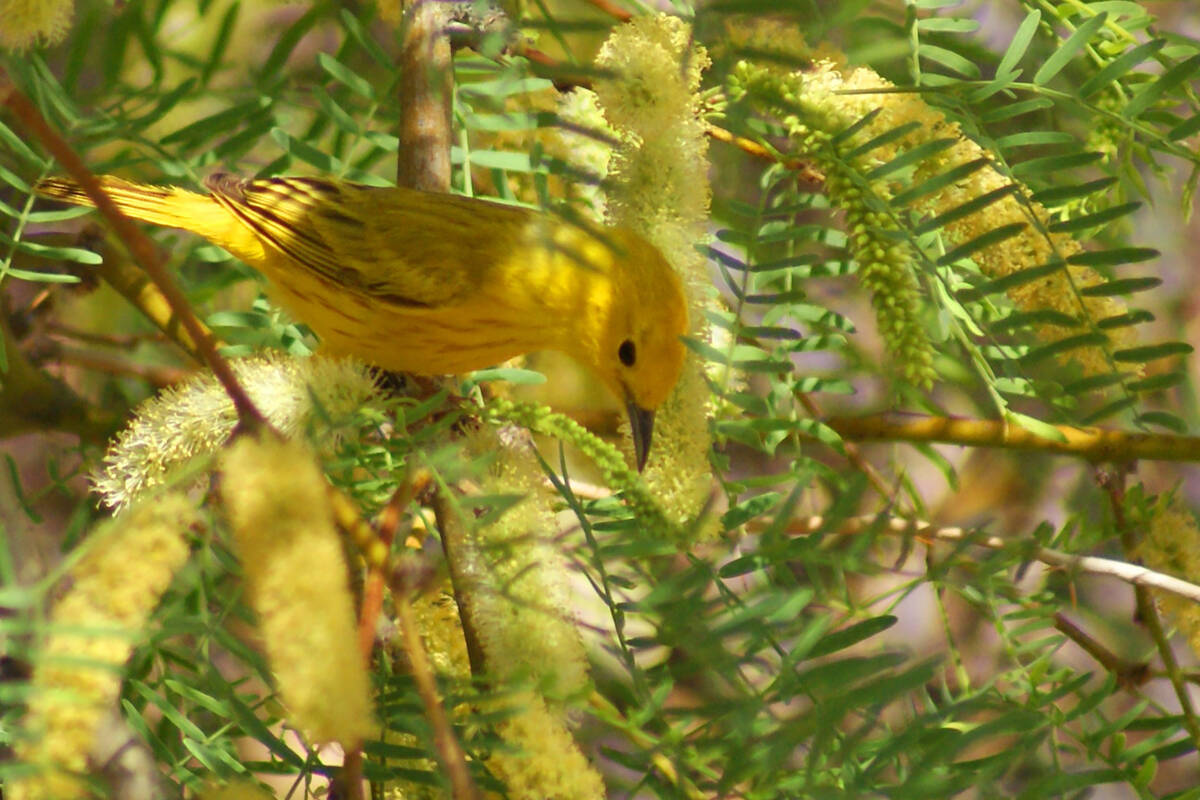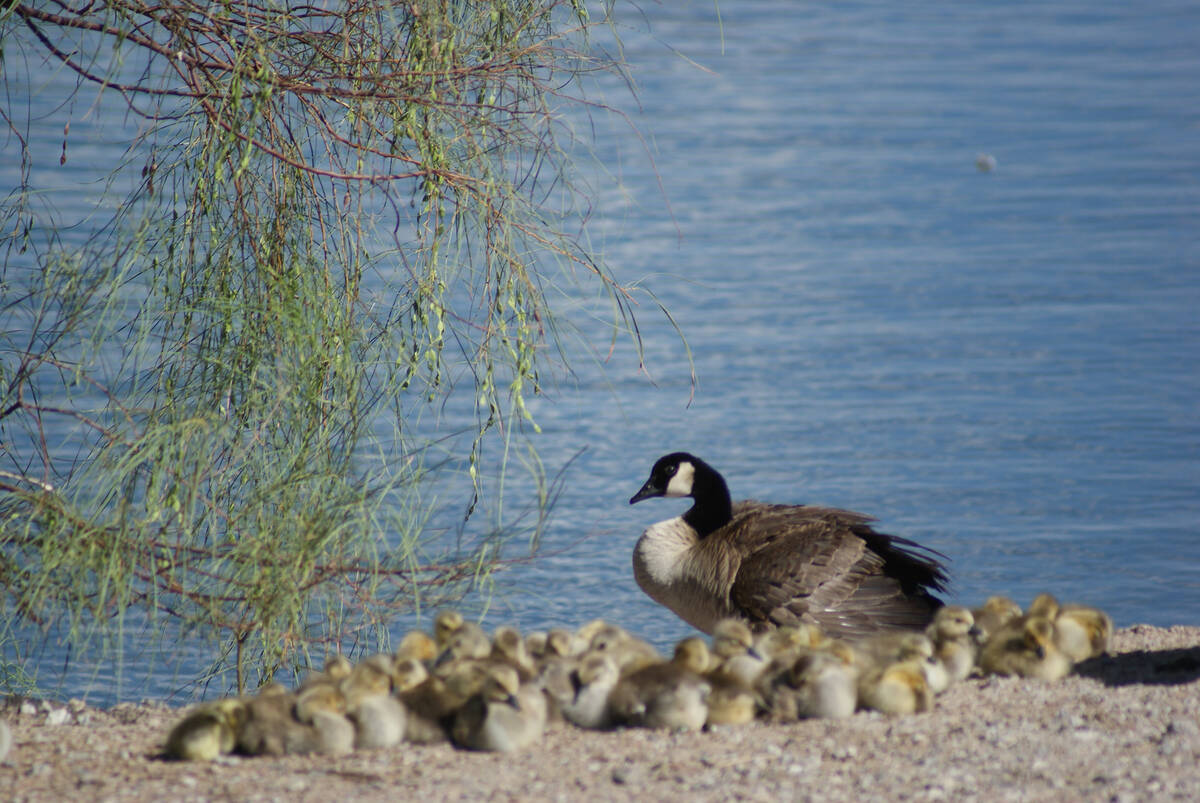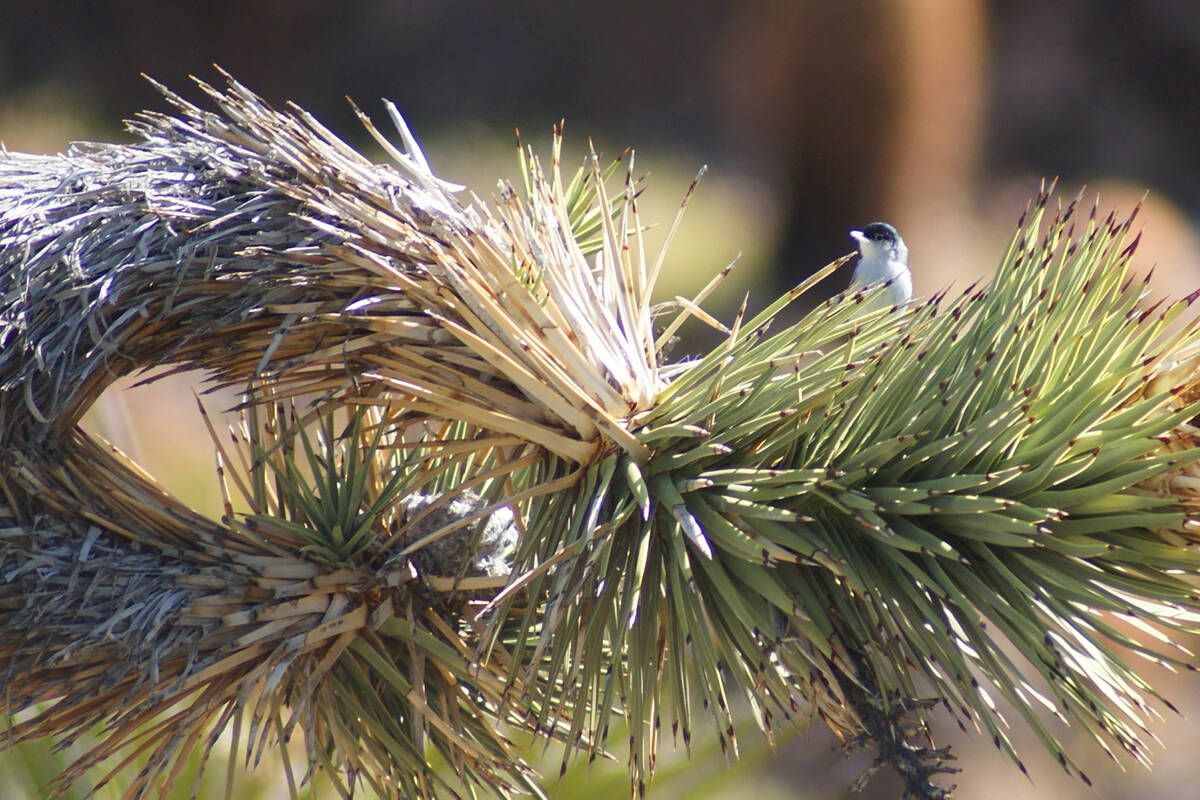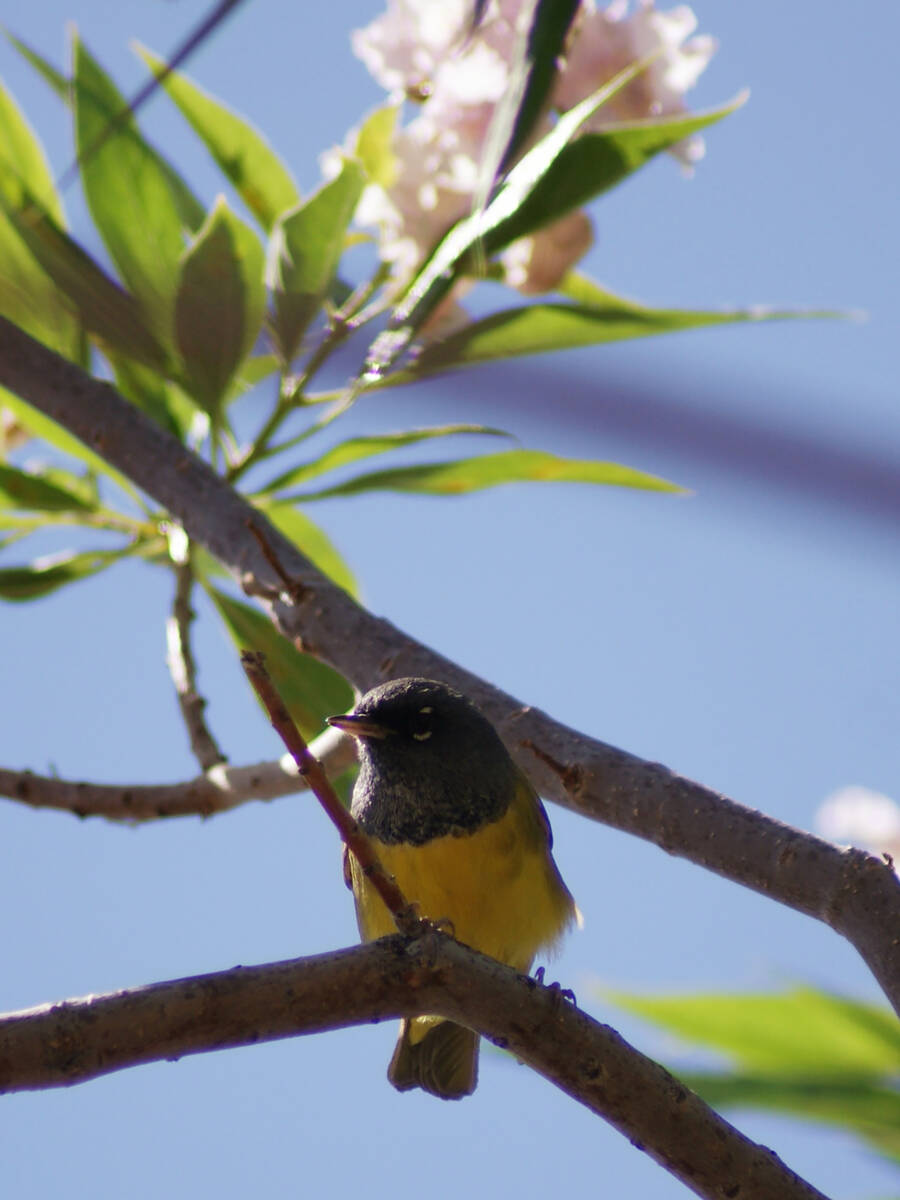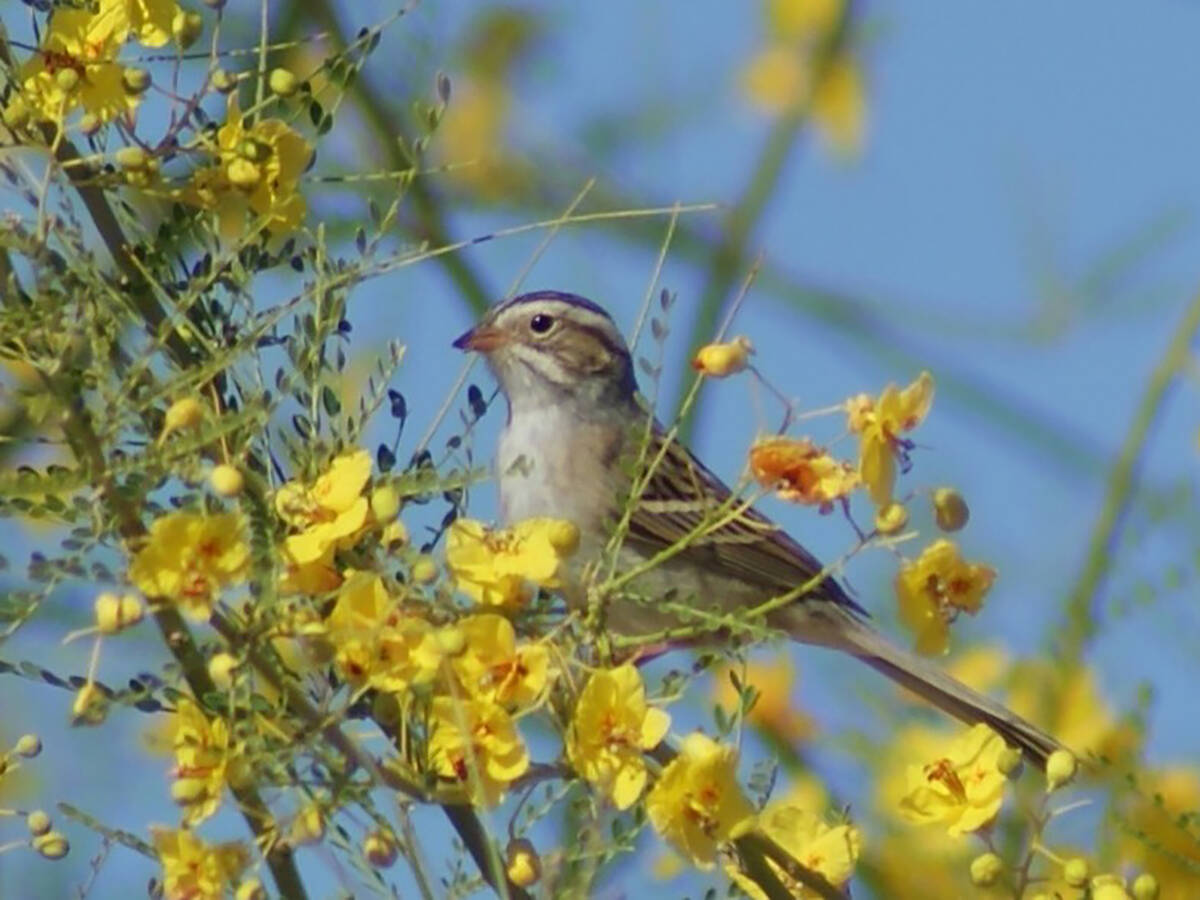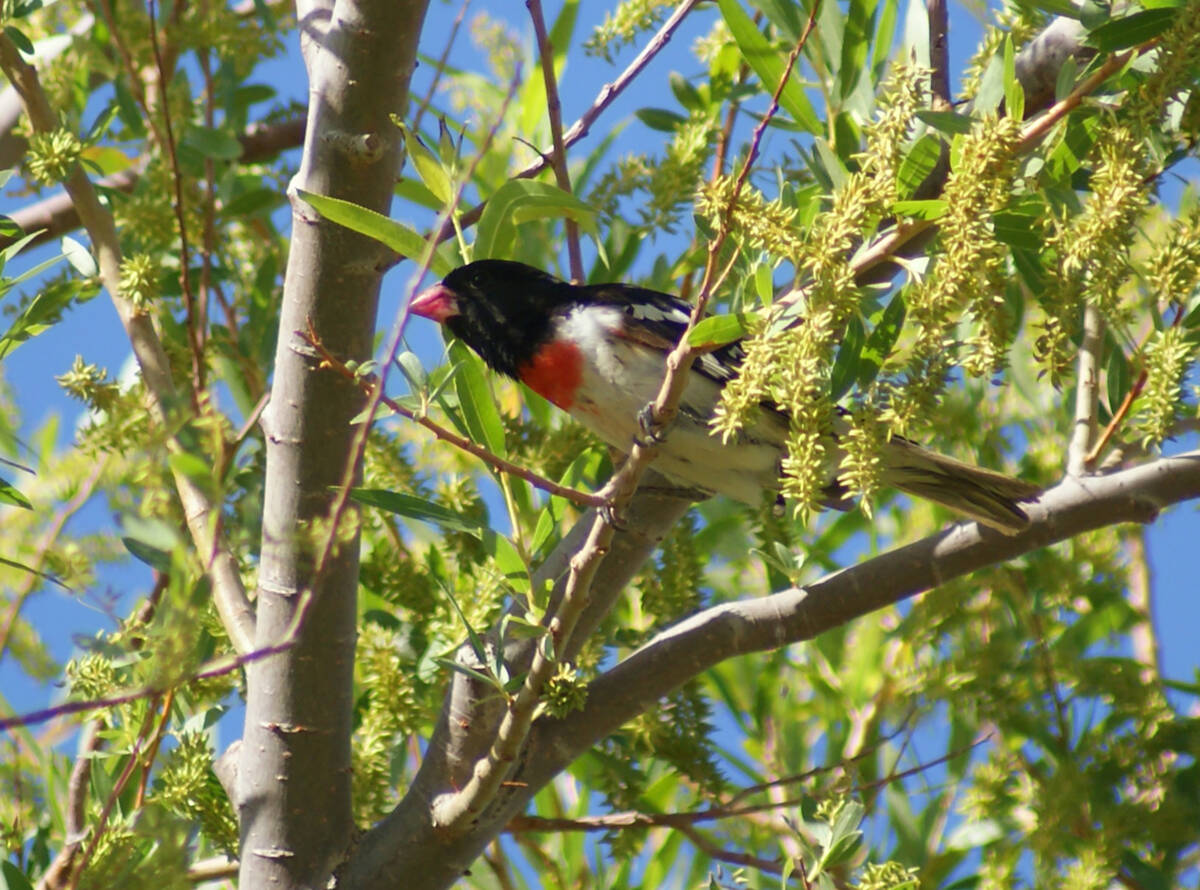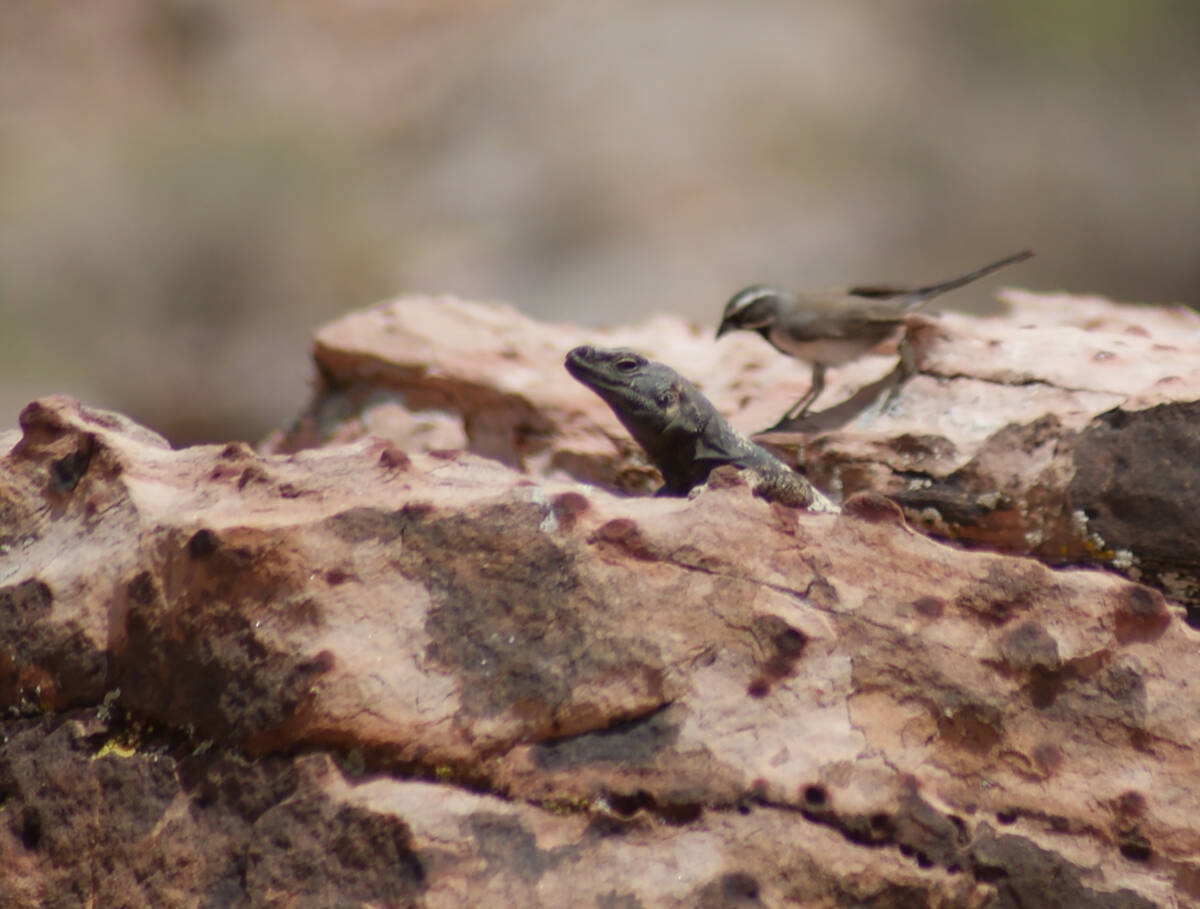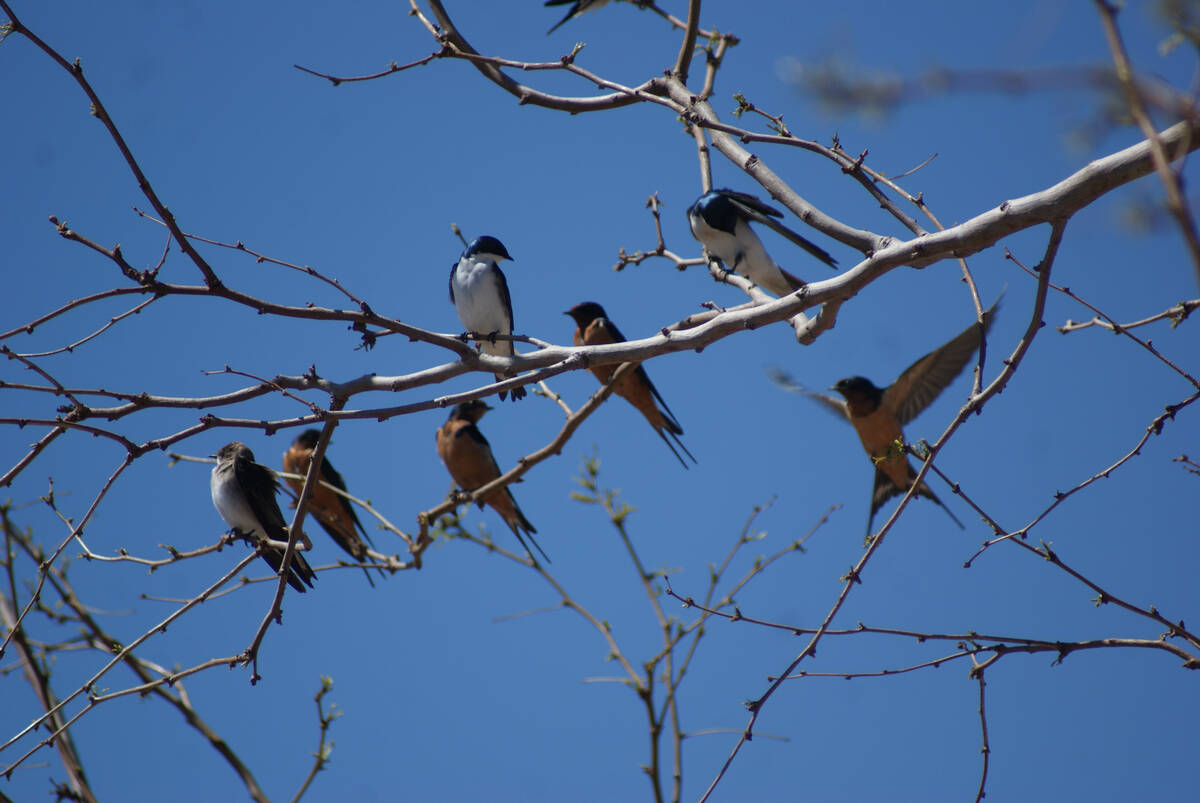Want to ease anxiety? Look to the sky
Canada geese corralling dozens of fluffy goslings at Cornerstone Park. Black-tailed gnatcatchers tending to their nest in a Joshua tree at Red Rock. A brave black-throated sparrow challenging a chuckwalla at Calico Basin. Anna’s hummingbirds feeding in your own backyard.
Tuning in to such spring scenes could help you start a mindfulness habit.
Birds give Southern Nevadans plenty of opportunity to practice mindfulness, an ideal state in which people intentionally focus their awareness and appreciation on the present to find a little calm. The practice gives the brain a break from the swirling mix of other thoughts, obligations and worries that could be contributing to an unhealthy amount of stress and anxiety.
Early May is the height of spring migration, providing an excellent opportunity to practice mindfulness while listening to and watching birds and their captivating behaviors. Resident Mojave Desert birds are also more active and visible during spring because the males are belting out tunes at the tops of bushes, rocks and trees to attract females.
With or without birding as its context, mindfulness is a buzzword that comes up in discussions about improving mental health. Research supports the practice of mindfulness as a way to curb obsessive worrying and to avoid getting overwhelmed by what’s happening in daily life. The act of intentionally focusing and living in the present moment is credited with reducing stress and improving focus. The more that people practice mindfulness in whatever interest area or surrounding circumstance is important to them, the easier it becomes to regularly reach a state of calm.
Researchers also tout exercise and connections to nature as smart strategies for mental health improvement. In most cases, spending time watching birds involves walking, mindfulness and building a connection to nature.
Mindfulness opportunities
In my view, the 20 minutes I spent sitting in the shade of a boulder last weekend at Calico Basin count as mindfulness practice. With ancient sandstone supporting my back, I took in the postcard view. I watched black-throated sparrows and rock wrens fly in and out of a tableau of gorgeous red rock dotted with the brilliant purple, orange and yellow of Mojave aster, globe mallow, desert marigold and phacelia. I listened to the sparrows’ and wrens’ songs and calls as well as to the sounds of white-throated swifts flying high above. Being fully present and appreciating my time at Calico Basin came easily on that Sunday morning.
Red Rock Canyon National Conservation Area has some of the area’s finest wildlife viewing potential because of its water and food sources, but also worth checking out in early May are other birding hot spots such as Corn Creek Field Station at Desert National Wildlife Refuge, Henderson Bird Viewing Preserve and Clark County Wetlands Park. Migrating birds also may make stops in neighborhood parks, including near trails along washes. Some Southern Nevadans are lucky enough to have spring migrants like green-tailed towhee, house wren and MacGillivray’s warbler show up in their backyards.
Spring migration, when songbirds fly north from wintering grounds in Mexico and Central America, means visits from feathered friends in greater numbers and varieties. They drop down into Southern Nevada’s green spaces to rest and refuel on their way to nesting destinations farther north in the U.S., Canada and Arctic regions. Migrants seen a week ago in Clark County, according to eBird, include a black-headed grosbeak, yellow warblers, American goldfinches, Bullock’s orioles, a northern parula, Lazuli buntings, plumbeous vireos and six different species of swallows. Generally, those birds have been missing from the local birding scene since last summer or fall.
Corn Creek
Mindfulness options in early May include watching grosbeaks, buntings and tanagers dressed in their brightest feathers of the year as they forage in the trees and splash in the waters of Corn Creek Field Station. Benches, some in the shade, are available for sitting down and focusing on whatever nature narrative you choose.
For at least a few of us, there’s something magical about watching a warbler getting a drink from Corn Creek after having recently flown hundreds or thousands of miles from Mexico or Central America. It’s mesmerizing to track vermilion flycatchers as they do what their name suggests — catch insects while deftly flying around in a handsome red suit.
Wetlands Park
Benches for sitting and focusing on the present moment are also found in a shaded cottonwood grove or along sun-drenched spots of the trail system at Clark County Wetlands Park’s nature preserve. Under the tree canopy last spring, visitors caught glimpses of a bright red summer tanager jumping from branch to branch in search of lunch. Fresh eBird reports show black-chinned hummingbirds and Lucy’s warblers have returned this spring to raise their families at this valley oasis.
Henderson preserve
The Henderson Bird Viewing Preserve is an important wintering home for thousands of ducks and geese escaping frigid conditions elsewhere, and many of these Clark County snowbirds have already begun their journey back north to take care of nesting business. In spring, warblers can be spotted in trees lining ponds and walking paths at the preserve. Some of the common yellowthroats and yellow warblers that have arrived recently are expected to stick around for summer to raise families. A week ago, eBird reports counted migrating shorebirds including American avocets, spotted sandpipers, phalaropes and dowitchers. The bird preserve is well-equipped with benches and bird blinds, but there’s little escape from the sun.
Birds spending migratory time throughout Southern Nevada for the next couple of weeks are giving locals extra opportunities to strengthen their connections with nature and their commitments to mindfulness. Visiting their rest stops early in the morning is best for witnessing bird activity and enduring Southern Nevada’s heat.
Helpful birding resources
Finding out what others have seen recently at local birding hot spots is as easy as searching up the location's name and "eBird." The Cornell Lab of Ornithology-managed online resource includes checklists submitted by local birders. Last week, for example, recent checklists for the Henderson Bird Viewing Preserve were found.
Knowledgeable people are power for those new to birding, and the Red Rock Audubon Society offers regular field trips, bird walks, programs and meetings. Southern Nevada's Audubon chapter advocates for the protection of the Mojave Desert's birds and wildlife habitats.



